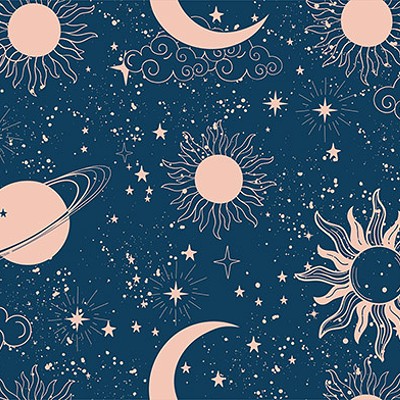Of the three, only the Penguins have played under the same name for their entire existence. The fact that they've played crappy hockey in recent years -- just like they used to in the good old days -- is also a nice retro touch.
Of course, the Penguins haven't been in existence as long as the other two teams, having only been around since 1967, while the Pirates date back in the 1800s and the Steelers -- fittingly enough -- got their start during the Great Depression. Given shifts in marketing strategy and economics, in a few years we might be calling the Pens something else entirely. Like, say, the Nashville Penguins.
Bob Grove's official history of the Penguins notes that the team's management had to come up with a name other than that of the existing minor-league squad, the Hornets. (Coaches apparently assumed that, for the first few years at least, people wouldn't recognize that the expansion squad was a pro team just by watching it play.) The new name was picked by the wife of team co-owner Jack McGregor, who Grove says was inspired by the fact that the Civic Arena was often called "The Igloo." Indigenous tribes should be glad Mrs. McGregor didn't realize that the inhabitants of igloos are in fact known as Eskimos; that would have meant just one more demeaning sports stereotype for them to contend with.
There's no shortage of piracy at Pittsburgh sporting events -- just buy a beer and you'll see -- but when the Pirates began play in 1887, they started as the Pittsburgh Alleghenies. But two years later, they were caught up in a sports scandal when they stole a player, Louis Bierbauer, from the Philadelphia Athletics. The Athletics only had themselves to blame, having forgotten to put Bierbauer's name on a list of protected players, but nevertheless Philly sports boosters accused Pittsburgh of being "piratical" for filching their player.
That bothered Pittsburgh's owners about as much as it would bother a free agent ballplayer if you called him a "mercenary" today. The Pittsburgh team even turned the accusation into a new name. Much tougher-sounding than "Alleghenies," and a nice job of shoving it in Philadelphia's face.
You couldn't get away with this kind of moxie today, largely because sports figures today are accused of committing much more serious crimes. Just ask the Los Angeles Ra -- I mean Lakers.
But back in those days, the charge of being a Pirate was honorable enough that, when the Steelers were established in 1933, they were first known as the Pittsburgh Pirates too. It fit, if only because the offense could barely put up enough points to make a respectable baseball team. Fan interest in the squad waned quickly. Not even the 1938 acquisition of Byron "Whizzer" White -- a standout running back who later became a U.S. Supreme Court justice -- made much of an impact.
Today, of course, a lot of us would pay good money to see a few Supreme Court justices get knocked around a gridiron. But sports fans in those days were more discerning. So in 1940, team owner Art Rooney Sr. held a contest to come up with a new name for a team. Several local fans, who made up for their lack of imagination with keen powers of observation, noted the presence of the local steel industry and suggested the name "Steelers." That's the name the team has had ever since, unless you count the World War II years, when they also played as the "Steagles" and the "Card-Pitts." (Technically speaking, these teams were actually hybrid offspring of mergers with other teams: A manpower shortage meant teams had to combine their rosters just to field a squad.) The team continued to stink for years, however, until the beloved Rooney finally figured out the elusive secret to attracting interest in your team: Find better players and win more games.
All three teams have struggled with this formula, which is of course part of their history and charm. With a few notable exceptions in their long histories, Pittsburgh teams, by any other name, still smell about the same.










